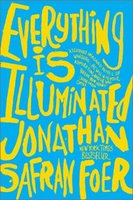Wednesday, June 21, 2006
A mismanagement with a brick wall

 THERE ARE A LOT OF THINGS I MIGHT HAVE WRITTEN about this week, from the underpants fiasco at the World Cup to the deal struck to finance the Palestinian government's employees without paying Hamas, but what wound me up most this last little while was the Oilers' brave, nearly triumphant (that's a big 'nearly') run for the Stanley Cup, which came to a disappointing end on Monday. Now, I don't usually watch hockey, regardless of how many games I may or may not have sat through when I was younger (usually bringing a book), so I will not pretend to be able to speak about the sport with any authority. Instead, I'm going to talk about something completely different, with a bit of a refreshingly on-topic ending.
THERE ARE A LOT OF THINGS I MIGHT HAVE WRITTEN about this week, from the underpants fiasco at the World Cup to the deal struck to finance the Palestinian government's employees without paying Hamas, but what wound me up most this last little while was the Oilers' brave, nearly triumphant (that's a big 'nearly') run for the Stanley Cup, which came to a disappointing end on Monday. Now, I don't usually watch hockey, regardless of how many games I may or may not have sat through when I was younger (usually bringing a book), so I will not pretend to be able to speak about the sport with any authority. Instead, I'm going to talk about something completely different, with a bit of a refreshingly on-topic ending.I just finished reading Jonathan Safran Foer's Everything is Illuminated, and I have to say it really was a luminous book. I'd heard there was a movie out, but my recollection was fuzzy, and reading the novel, I couldn't find any of the sunflowers I remembered seeing on the poster, so I thought I might have gotten it mixed up with something else. Sunflowers aside, this is a hilarious, ruminating, sentimental and heartbreaking book in all the ways Dave Eggers wishes he could be. You remember him, the guy who wrote A Heartbreaking Work of Staggering Genius, the book I threw against a wall, stuck a pen through, buried in the freezer and refused to continue reading because it was so drenchingly self-obsessed. Now, I should point out that the main character if Everything is Illuminated is named Jonathan Safran Foer, he and the author are both vegetarians, American, Jewish, and trace the intercontinental threads of their ancestry back to Ukraine, but this book is not an exercise in self indulgence, but a sweet and genuinely funny meditation on family, on misinterpretation, on fate, on remembrance, and on the way we can look in the mirror and look back and back and back and see ourselves and our fathers and our mothers and their fathers and their mothers through decades and emigrations and lost loves and boxes and jars.
Foer's first novel, Illuminated is the story of his namesake, a young Jewish American with a trenchant fear of dogs, who makes a journey to Ukraine to find a woman who may be named Augustine and may or may not have saved his grandfather from the Nazis during the Second World War. It is partly a series of letters addressed to him from his erstwhile translator, Alex (or Shapka, or Alli, or Alexi-stop-spleening-me), partly Alex's (somewhat truthful) narration of Jonathan's arrival and their search for Augustine, and partly (the character) Jonathan's story of his family from the tiny town of Trachimbrod, which is so absurd and masterful I felt that moment in the mirror more than once while I was reading it. I first picked up this book on a whim from the university bookstore and had to give it away immediately, because I was in the middle of exams and was laughing so hard I had to reread the first ten pages out loud to myself twice, which is not conducive to studying at all.
But that's part of Foer's brilliance, and in large part the reason why this book is so readable. It shines with memory, with longing for something we feel is missing but may never have known at all, and with a deep and abiding love and forgiveness for people, which is a truly rare thing. Now, you may read the book and disagree with me, but that is something we would have to have a debate about when we got there. The town of Trachimbrod is lovingly hewn from something old and familiar, something immediate but 'once-removed,' as the eponymous Brod says. A handful of string floating down a river, a crushed velvet glove, an upside down carriage and a pair of twins named Hannah and Chana witness the mysterious rebirth of a town and a history, and the beginning of a long line of tangled wit and sadness. Jonathan's family, he tells us, may have perched on the edge of coincidence and serendipity their whole lives; there is something delightfully ridiculous about the way a certain angle or gust of wind could have changed their entire lives. And what's more, they could have changed his.
Foer's genius is in shining a light down that corridor between the hilarious and the happenstance. If only he hadn't said... if only they'd seen... if only she'd remembered to... The book is filled with moments like these, and we begin to get the dim sense, if Jonathan doesn't quite, that when we are looking at him, at the snippets of the moments of his arrival in Odessa and search for Trachimbrod, that when we look at him, we have to look through the stories of his grandfather and his great-great-great-grandfather, and the Upright Jews and the Slouching Jews, and the Synagogue on wheels that irrepressibly toes the invisible line between 'the Jews and the Humans,' who together make the whole.
Most of the book, though, is narrated by our translator of dubious-repute, Alex, who tells us he is 'most premium' with the ladies, and enjoys 'being carnal' with them. He is earnest and affectionate, if not reserved, and is devoted to 'the hero,' even long after Jonathan has gone back to America and his grandmother. Alex's grandfather, who announced his sudden blindness after his wife's death, is the official driver of Heritage Tours, as Alex's father calls their tourist scheme, and is well-versed in falling asleep in the car waiting for... well, for many things. I fell in love with Sammy Davis Junior, Junior, the 'Officious Seeing-Eye Bitch' of Heritage tours, who is excellent at flatulence, and has many lessons and also many 'sixty-nines' to offer the hero in the backseat. It is these four that make the journey to find Trachimbrod, and the river Brod, and Kolki, and all the other small towns that dot Jonathan's past. But it is less any buildings or streams they are searching for than a shared luminous moment of some kind of truth.
And that's what brings me back to the Oilers. You see, the title of the book is taken from Milan Kundera's The Unbearable Lightness of Being, and it may comfort our dear Fernando Pisani and Smith and Smyth to remember the springs of 1984, and '85, and even '90, and know that 'In the sunset of dissolution, everything is illuminated by the aura of nostalgia; even,' Kundera adds, 'the guillotine.' Okay, ambiguous. But welcome home, Fernando.
Labels: books
posted by Christopher at 5:18 p.m.
2 Comments:
Hey Topher. Sounds like one I will read. Still slowly working on 'The Time Traveller's Wife'. I love reading about the goofy and other happenings of families.
Soon Chris. (Tdot amigo)
I'll cut your hair again at my place in august.
Soon Chris. (Tdot amigo)
I'll cut your hair again at my place in august.
Okay, I ended up giving away like twenty books the day I left and I cannot for the life of me figure out who this is.
Which Tdot amigo is this, and have you seen my head recently? Also, I send you gratitude and I am glad I have piqued your interest with this book.
Which Tdot amigo is this, and have you seen my head recently? Also, I send you gratitude and I am glad I have piqued your interest with this book.

This work is licensed under a Creative Commons Attribution-Noncommercial-Share Alike 3.0 Unported License.




